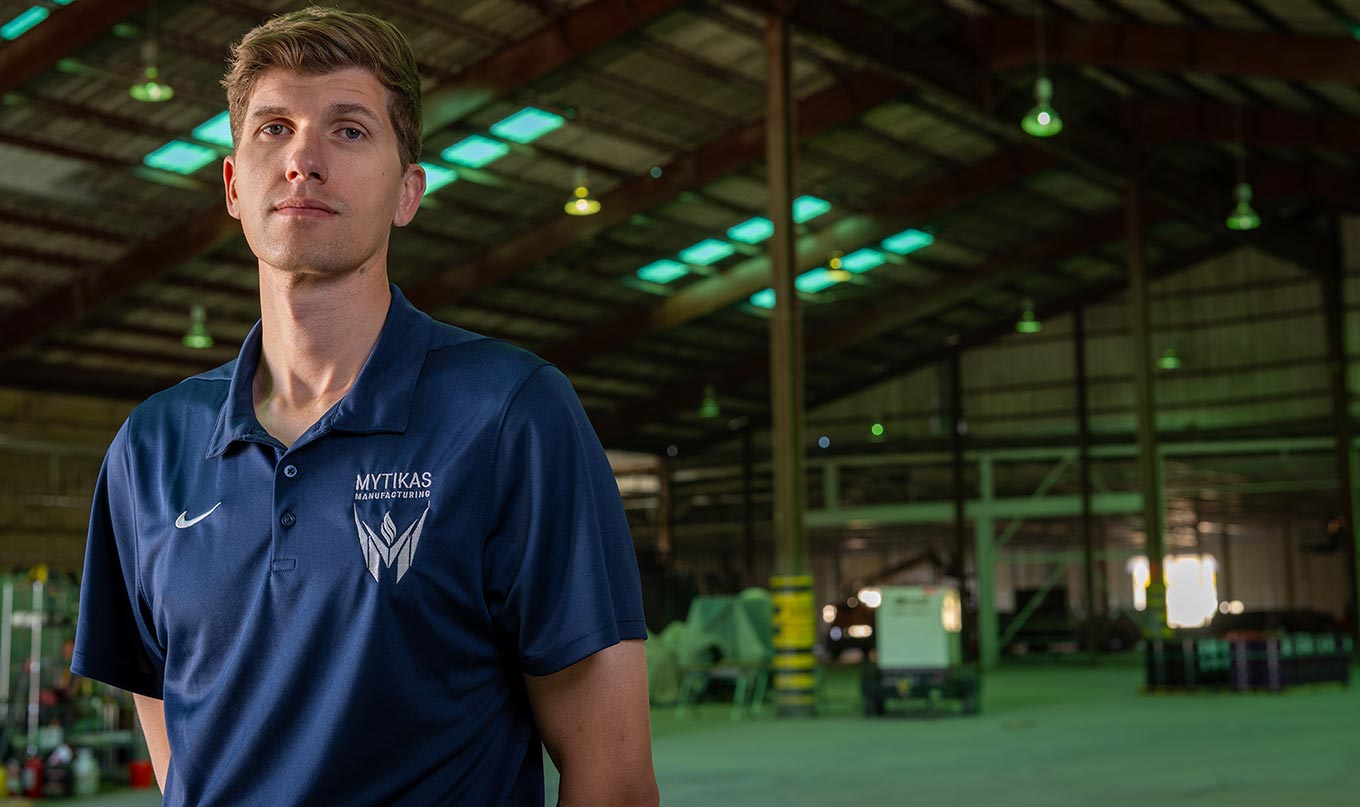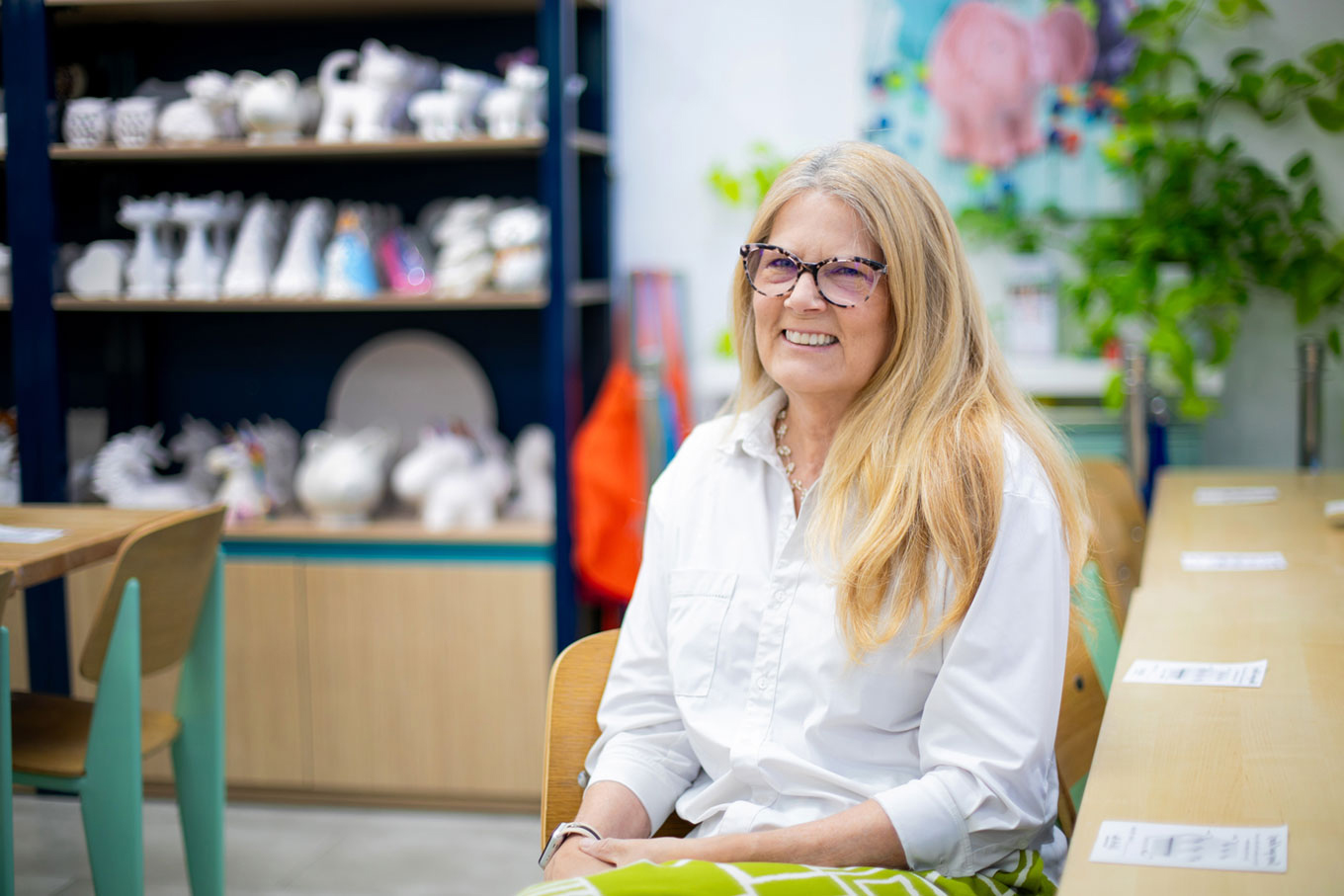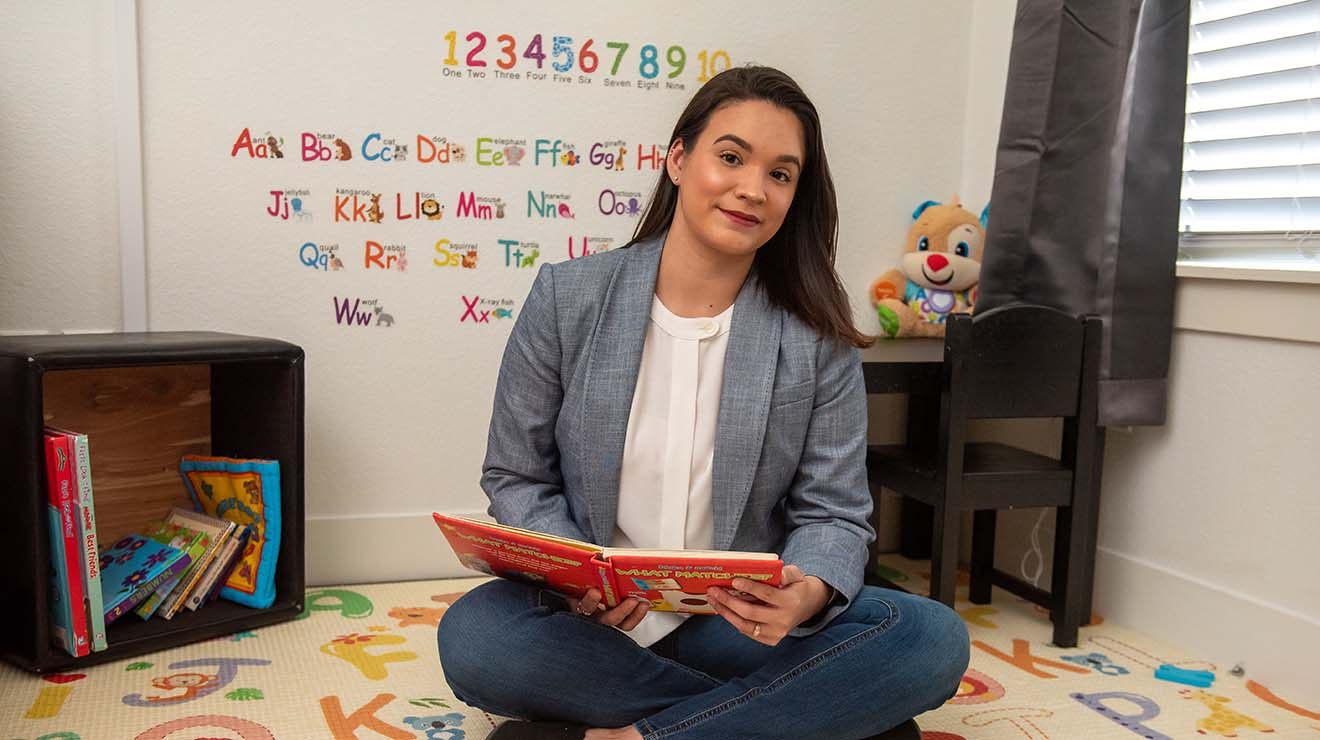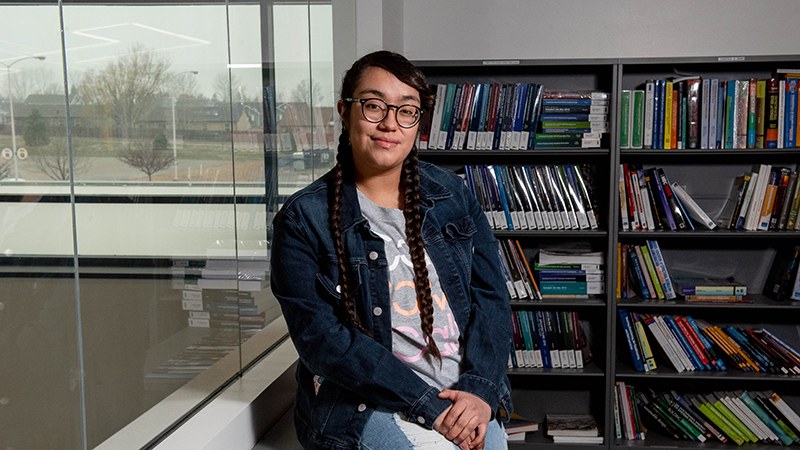A rural Colorado startup is about to test tiny homes manufactured from recycled steel to prove that they can withstand Colorado’s weather, including snow loads up to 100 pounds per square foot, wind storms and intensifying wildfires.
Mytikas Industries—named for the highest part of Mount Olympus, mythological home to Greek gods—plans to start building what it calls “premium-grade” small homes in a refurbished 80-year-old former gypsum factory in Florence, about 40 miles southwest of Colorado Springs.
Mytikas is among 73 small businesses in 20 economically challenged counties that have benefited from the Rural Jump-Start Program, a state tax incentive created in 2015 via legislation. Under the program, companies that start in or move to economically underserved areas are not required to pay state income, sales and use taxes or county and municipal personal property taxes. Acceptance into the program includes a four-year tax benefit with the opportunity to apply for a four-year extension.
The businesses also qualify for a state grant program that began in 2021 and requires qualifying entities to be based in economically disadvantaged rural areas designated by the state as needing assistance to boost their economies. The program, which offers one-time grants to qualifying businesses, was extended this year.
Mytikas wants to build a successful business while lowering the cost of housing across Colorado.
“These homes will be built to last,” said Eric Bonick, Mytikas’s chief financial officer and one of the cofounders. “We will… prove not only to customers, but to insurance underwriters, that these units not only are top notch, but will bring down insurance costs to consumers.”
Bonick said that the 399-square-foot steel homes will be not only fireproof but also impermeable to air, bugs and moisture. While wood remains the primary material in most American homes, Mytikas’s structures will be more akin to modern, primarily metal European dwellings, he added.
Mytikas Industries spent about $5 million over the last two years to rebuild the manufacturing facility in Florence. The 150,000-square-foot facility required new electrical, plumbing and heating systems and the removal of more than 200 tons of debris.
When the facility is complete later this fall, the firm will bring on about 17 employees to build up to 100 tiny homes in 2026, Bonick said. The target market for the structures includes empty nesters, single folks, ski areas looking for workforce housing and campgrounds.
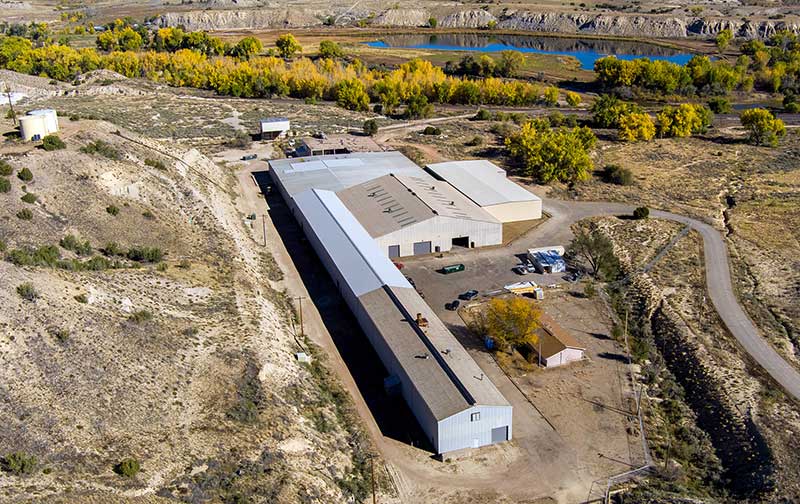
The Mytikas Industries manufacturing complex outside of Florence, Colo. on Wednesday, Oct. 22, 2025. The company spent about $5 million over the last two years to rebuild the facility, which was formerly a gypsum factory. Photo by Mike Sweeney / Special to The Colorado Trust
As it marks its 10th anniversary, officials credit the Rural Jump-Start Zone Tax Credit with generating hundreds of new jobs across Colorado. In the last fiscal year alone, the effort provided about $1.3 million in grant funding to 29 businesses, which created 212 new jobs.
Mytikas plans to add to this list, hiring people in a southern Colorado county where the unemployment rate, at 4.7% in August, is higher than the state’s 4.2% as of Sept. 19.
Colorado’s rural tax incentive program is modeled in part after similar initiatives in Kansas, Nebraska, Oklahoma and New York, said Quina Weber-Shirk, senior program manager in Colorado’s Office of Economic Development and International Trade.
“Small businesses drive our economy, particularly in rural Colorado,” she wrote in an email. “The Rural Jump-Start program is diversifying and strengthening local economies while creating new jobs.”
Companies accepted into the effort vary widely, such as Bruin Waste Management, a recycling facility that plans to use the program’s incentives to expand in Grand Junction. Bruin will build a “state-of-the-art sortation technology, including AI-driven systems” and expects to hire 30 employees with annual salaries near Mesa County’s average at $56,524, according to an April announcement of the company’s program participation.
To qualify for the program, applicants like Bruin Waste Management must be in rural areas with higher unemployment and lower job wages. These firms must partner with a local sponsor and cannot compete directly with nearby businesses. They must also plan to hire at least a few employees by their third full year in the program.
Although Mytikas, the first small business to be awarded a Rural Jump-Start grant in Fremont County, is doing some things that overlap with existing tiny home manufacturers, it is also pioneering a “very unique business model,” said Rob Brown, executive director of the Fremont Economic Development Corporation.
“The real separator is how they are actually producing the building materials used to compose the structure,” said Brown, noting that their manufacturing process relies on plenty of automation, using metal on coils.
Brown’s organization is Mytikas’s sponsoring entity and helped vet its plans for the state. The development corporation looks forward to the high-paying jobs that Mytikas will generate, which will provide the county with “the opportunity to retain talent that would otherwise leave,” he said.
The state’s Rural Jump-Start program has helped small-town companies like Colorado Sun Tofu grow. The family-owned business now owns Denver restaurants City, O’City and Watercourse Foods, and sells soy milk and tofu.
Other program participants have even gone on to be publicly traded. Software mapping provider ProStar, the first business to join the program in 2016, went public in 2021. That same year, the Colorado Department of Transportation required state utilities to use the Grand Junction-based firm’s software to locate and manage infrastructure, including roads, railways and pipelines.
ProStar, which graduated from the Rural Jump-Start Program in 2024, “demonstrates the innovation that can be found in Colorado,” said Weber-Shirk.
Like Colorado Sun Tofu, the first company to benefit from the program in Las Animas County, and ProStar, the first in Mesa County, High Altitude Geothermal is the inaugural startup to be accepted into the Rural Jump-Start Program in Moffat County, located in the state’s northwest corner.
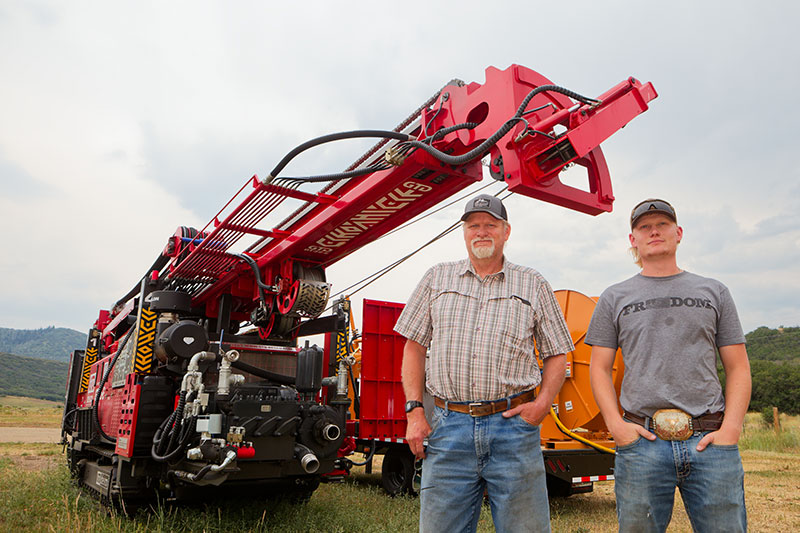
Matt Cooper and his son Matthew of High Altitude Geothermal with their drilling rig at their home in Moffat County, Colo., on Wednesday, July 30, 2025. Cooper started High Altitude Geothermal with help from Colorado’s Rural Jump-Start Program. Photo by Barton Glasser / Special to The Colorado Trust
Here, where the local economy has been buffeted by the state’s transition away from coal-based power, the county seat of Craig is girding for the loss of hundreds of jobs as the region’s power plants and the coal mines that feed them shut down.
Wade Buchanan, the director of a state agency designated to help such areas transition to other industries, told the Steamboat Pilot & Today in April that about 825 employees, including 616 mine workers and 209 employees in two power plants that serve Moffat, Rio Blanco and Routt counties, may need assistance.
A 28-year mine employee, Matt Cooper, 55, is preparing for the closure of his livelihood—and that of his two sons, who are also in the industry—by starting a new geothermal business. The firm will drill, design and install geothermal ground-source exchange systems and heat pumps to provide heating and air conditioning to residents, commercial firms and government facilities.
“We started looking at something that would put our skill set to work,” said Cooper. “We did a bunch of research and decided geothermal would be a good fit for us. We run equipment—it fits what we do.”
About $40,000 in grant money from the Rural Jump-Start Program, paired with $160,000 Cooper raised on his own, went toward purchasing a drill and other machines that the heavy equipment operator plans to use to install systems that run on the earth’s heat.
“We’re still in the firing-up process,” said Cooper. “We’ve had plenty of people contacting us about wanting us to do some of the jobs.”
Preparing to open his business, which will be among the first of its kind on the Western Slope, has been difficult, given that Cooper and his sons continue to work 12-hour rotating shifts at the coal mine. The family plans to start offering services by the end of the year, pending delivery of some pieces of equipment.
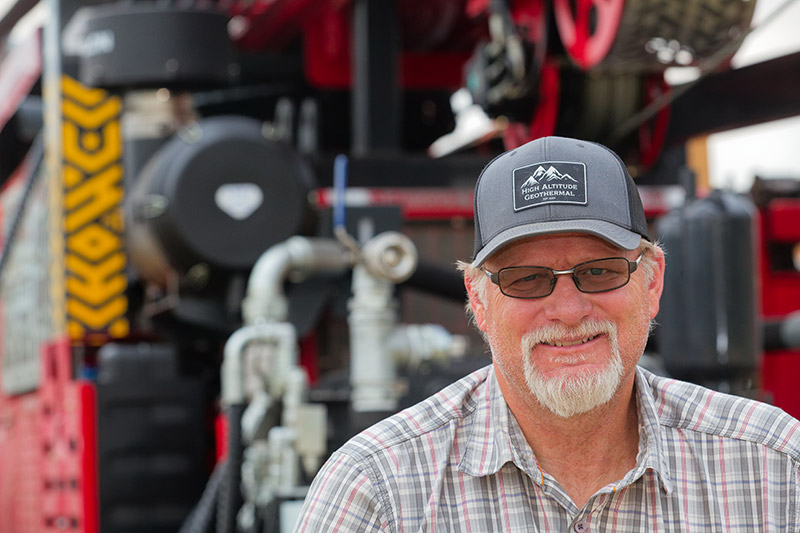
Matt Cooper of High Altitude Geothermal in front of his drilling rig in Moffat County, Colo., on Wednesday, July 30, 2025. The firm will drill, design and install geothermal ground-source exchange systems and heat pumps to provide heating and air conditioning to residential and commercial customers. Photo by Barton Glasser / Special to The Colorado Trust
In Florence, Mytikas plans to help the community by hiring workers and extending the benefits of the Rural Jump-Start Program to them in the form of state income-tax exemptions. The company hopes to eventually employ up to 200 workers in two shifts, building up to 1,000 tiny homes a year, said its CFO Bonick.
The structures will retail for $225,000, which includes delivery and installation—tasks that other tiny home manufacturers usually contract out to third parties. Mytikas also plans to use its specialized engineering equipment to supply building materials, such as steel trusses and cabinetry, to other construction companies.
“The machine is very precise; it allows construction crews to go faster with less human error,” Bonick said.
For companies enrolled in the Rural Jump-Start Program for several years, the benefits are reflected in adding new jobs that boost rural economies and their multiplier effect on small towns across Colorado.
In Vona, population 90, in Kit Carson County, CEAD Farms used program incentives to transform the community’s grain elevator into an organic flour mill. The plant processes crops grown across the street. It is a draw for those passing through, Sean O’Dell, the firm’s operations manager, said in a news release from the Colorado Office of Economic Development and International Trade.
“It’s very important to give people a reason to stop in Vona, and a reason we tried to create a very appealing facility,” he added. “Getting more eyeballs on the town of Vona is a huge positive.”
